Teen suicide: Leeton girl Meg Thomas’ family reveal how the system failed her
Meg Thomas, a vibrant country girl tormented by bullies, was judged to have enough mental health support two days before her suicide. Now the 13-year-old’s family reveal the impact of the catastrophic error.
NSW
Don't miss out on the headlines from NSW. Followed categories will be added to My News.
A 13-year-old country girl suicided two days after her psychiatry appointment was suddenly cancelled by the local health authority because she had “sufficient support”.
And two days after Meg Thomas’ death her grieving mother picked up the phone to hear the health authority ask her to rate their service.
Leeton couple Wayne and Gin Thomas are calling for an increase to school counsellor and mental health resources after losing their daughter in October 2018.
Rocked by a string of youth suicides in the Riverina, including two young teenage girls in the past four months, the Thomas family is speaking publicly for the first time in the hope others don’t endure the “emptiness” of losing a loved one.
“She is never going to be doing somersaults out on the back lawn anymore,” mother Gin, 44, said from their 20ha farm.
“Three years on, there’s always something missing. Your car is not full. The kitchen table is not full. There is always going to be one missing.”
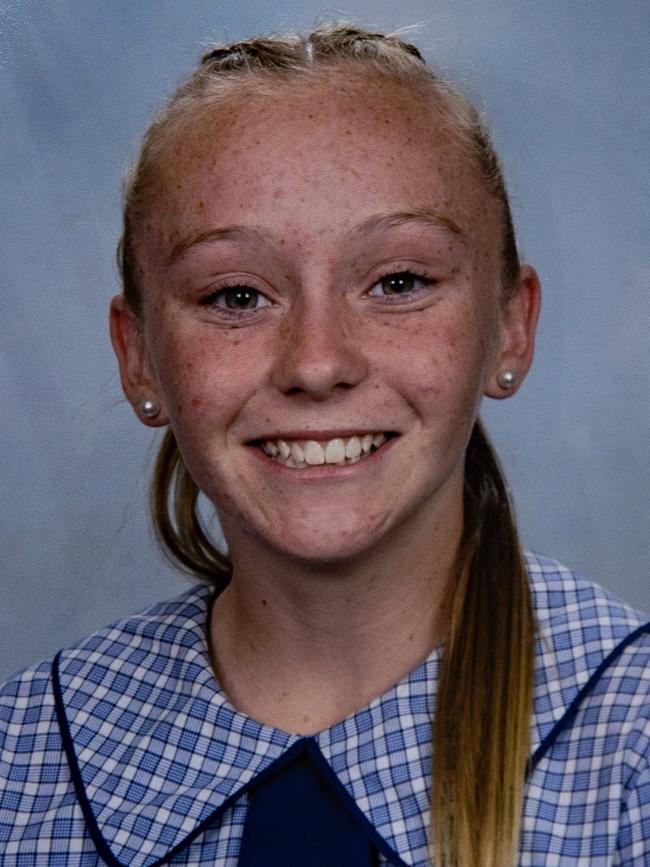
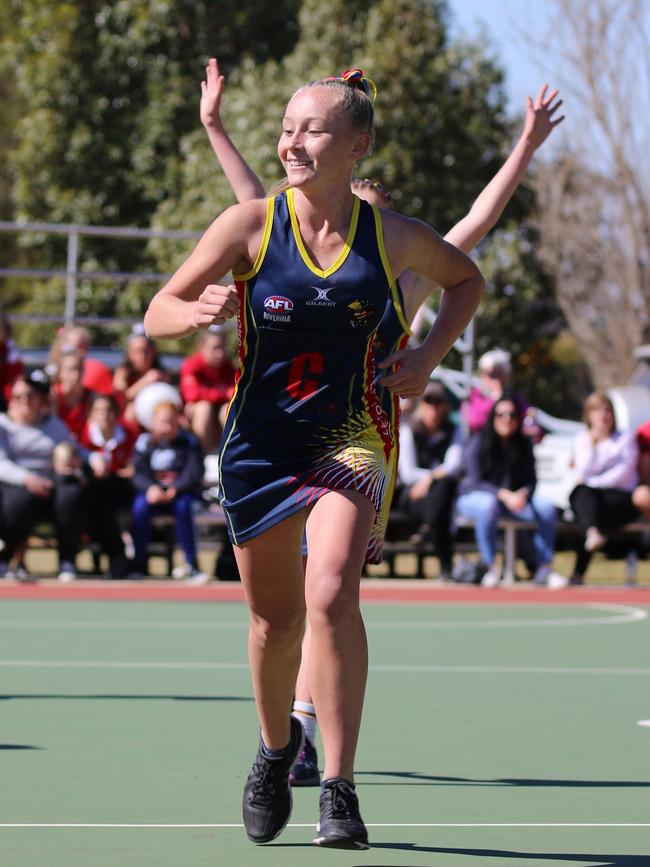
Meg was a netball and basketball star who was an above average student at a local Catholic school in Leeton.
She was an otherwise happy kid growing up with her three siblings until a spate of cyber bullying sent her spiralling into severe anxiety and depression.
Meg told the school counsellor, with whom she had a strong connection, that she had attempted suicide.
Meg’s parents were told the same day, September 24, 2018, and Meg was prescribed antidepressant Lexam by her GP.
“We would go for a drive, and I would ask her ‘are you enjoying this, life’s good?’ and she said ‘I’m just putting on a good face for you dad’,” Mr Thomas, 47, said.
“She thought that she was not good enough and was hearing nasty voices in her head.”
The GP told them the medication would worsen Meg’s mood before it got better and advised them to get an appointment with a psychiatrist via the Child and Adolescent Mental Health Service run by Murrumbidgee Local Health District.
Despite having made three suicide attempts within that month and numerous GP and hospital visits, CAMHS workers cancelled Meg’s psychiatry appointment on the day.
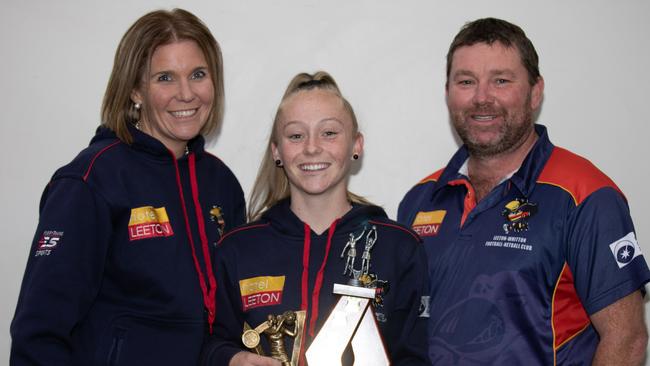
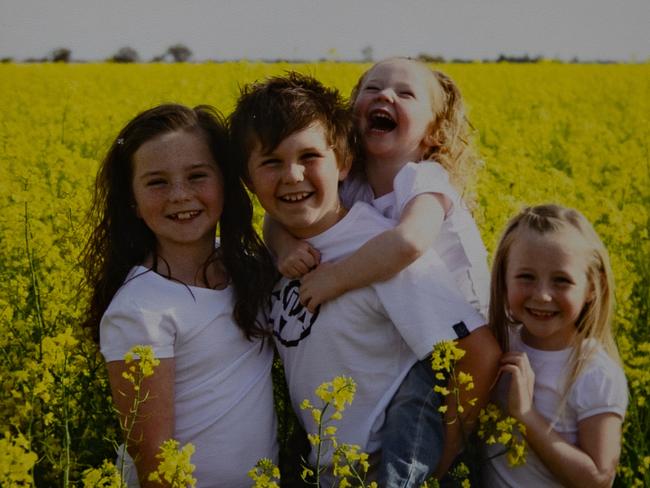
Mrs Thomas said she was told that Meg had sufficient support from her school counsellor, a private counsellor and her family.
Mrs Thomas instead told her daughter that the doctor was sick, saying: “I didn’t want her to think that they were giving up on her.”
Two days later, on October 30, she killed herself at home.
“We could have gone to that appointment and they could have said that the medication is not working for her or she needs to up the dosage,” Mrs Thomas said.
“I can’t say that if we’d been to that appointment, she may be here today. It’s the million dollar question.”
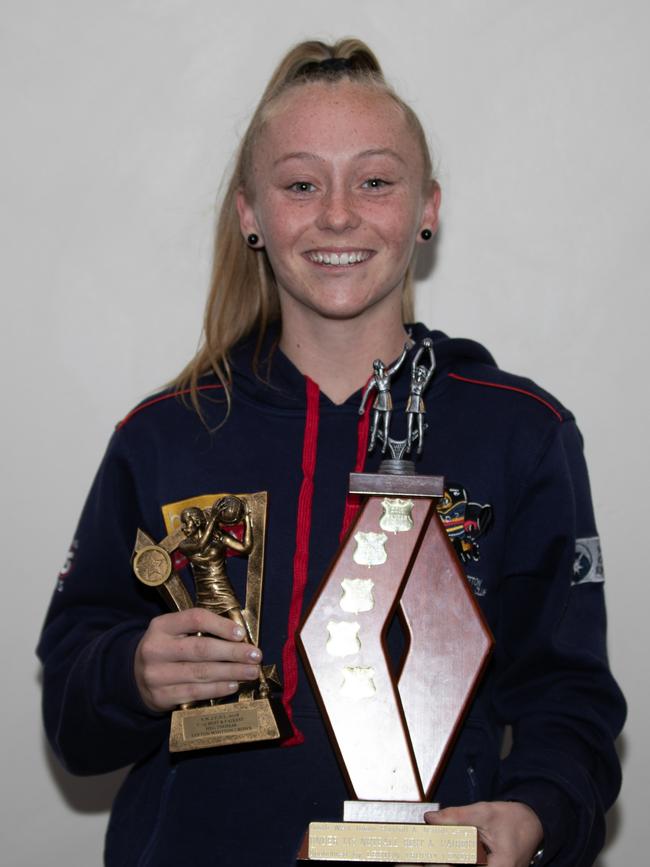
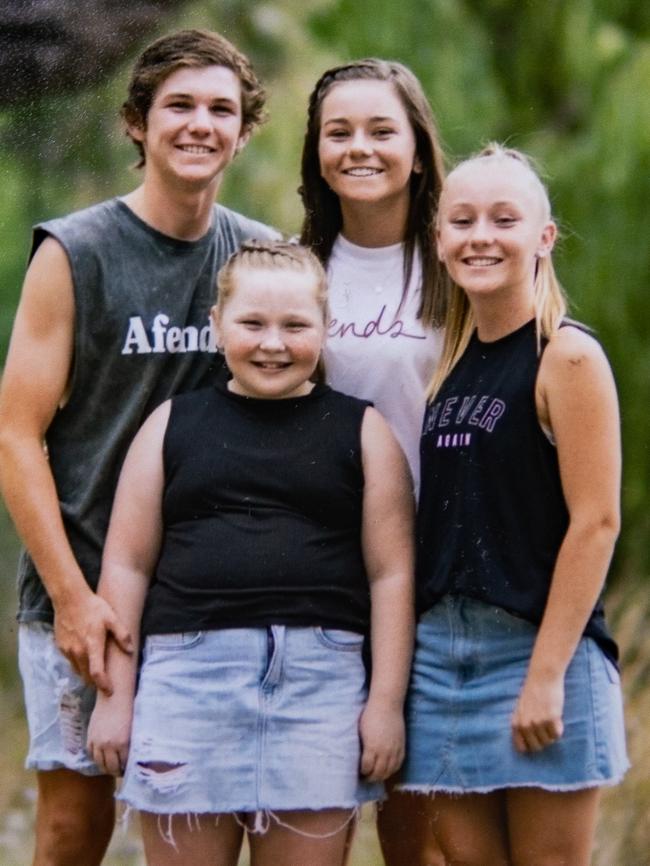
Meg’s death sparked an internal investigation by NSW Health, which found “the severity and significance of the consumer’s clinical picture was not fully understood”.
“The level of distress, physical and psychological impact of the panic attacks, intermittent suicidal ideation in context of new medication changes, warranted a higher level of concern via case management and psychiatry input,” the root cause analysis report said.
“The decision to discharge was premature. The RCA team therefore concluded the absence of ongoing specific Child Adolescent Mental Health Clinical Assessment and a failure to access timely Psychiatric Assessment may have contributed to the death of the consumer.”
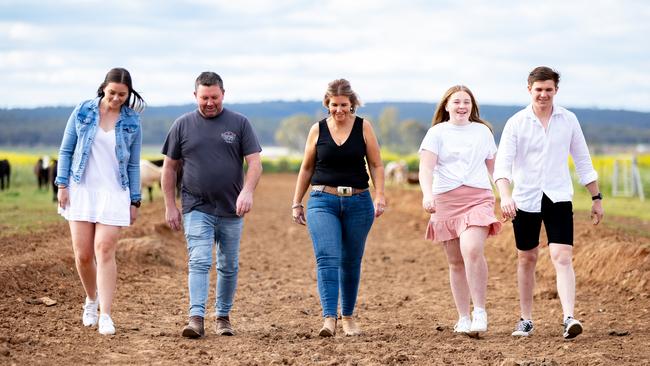
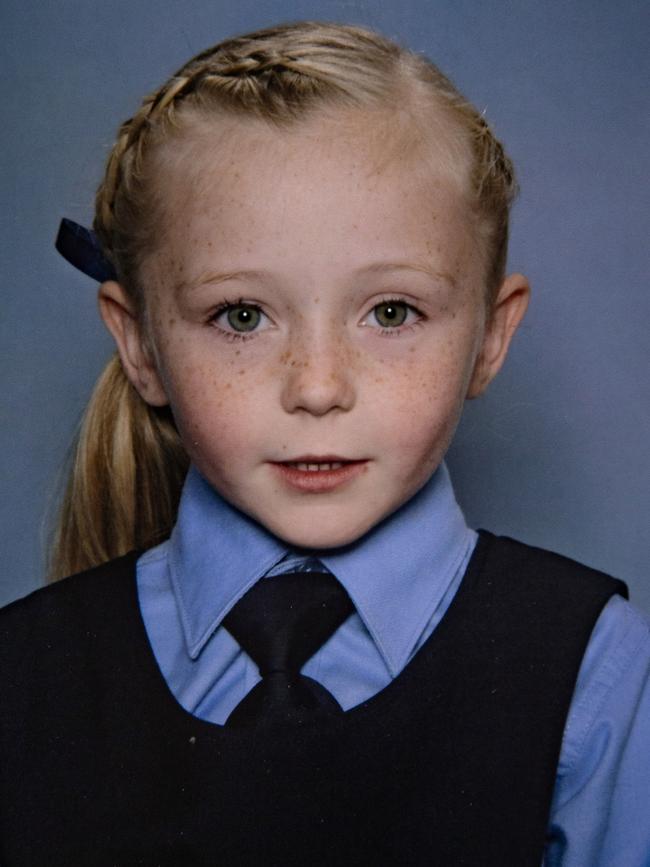
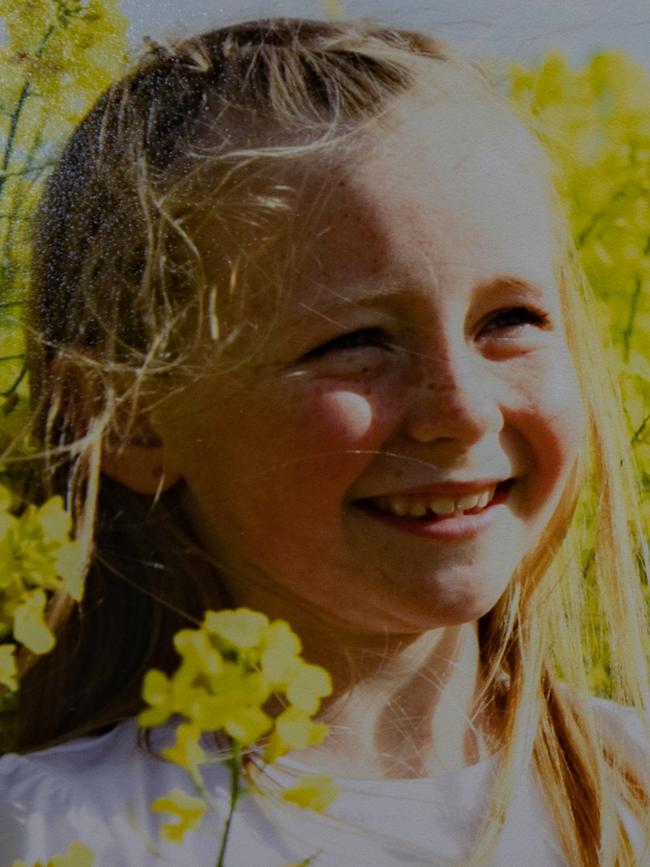
The case highlights the lack of resources and poor predictive value of the individual assessments that are made around young teenagers by acute mental health teams, according to the University of Sydney’s Brain and Mind Centre co-director Professor Ian Hickie.
“Ideally, young people presenting with this type of serious and repeated self-harm, persistent suicidal ideation, periods of clear agitation and ongoing risk should be assessed quickly by senior staff, linked into more specialised services and monitored closely,” he said.
“In this case, most of the responsibility was quickly pushed back to the family and the GP, without adequate engagement with more experienced and specialised service providers.”
The family say they are grateful that Meg had a good relationship with the school counsellor, adding that school counsellor numbers in the public system need to be bolstered.
The Sunday Telegraph’s Can We Talk campaign is calling for one counsellor for every 500 students in the state. This figure was agreed to by the state government “in principle” but never adopted. The ratio is about 1:725 students,
A spokeswoman for Murrumbidgee Local Health District said the Thomas family would be contacted to “offer support through its After Suicide Support Service”.
She said the Griffith Community Mental Health Drug and Alcohol team has “3.58 full-time equivalent Child and Adolescent Mental Health clinicians”.
Got a news tip? Email weekendtele@news.com.au
Call for more counsellors
Two separate teen suicide clusters and a lack of mental health workers has prompted one local MP to accuse government of neglecting country lives.
Murray state Shooters, Fishers and Farmers MP Helen Dalton said the area has been rocked by a spate of three teenagers that suicided around May and five teenage boys who died in the summer of 2019- 2020 in the Griffith area.
She said while she was very thankful that singer Guy Sebastian visited the area to engage with local schools, the southwestern NSW electorate needs more boots on the ground.
“I don’t know whether our lives don’t matter as much as maybe city lives,” Mrs Dalton said.
“We’re so short of clinicians, so psychiatrists and psychologists and counsellors. Anyone that is working in that field is absolutely overloaded.”
The Murrumbidgee area’s suicide rate is the second-highest in NSW and she is also calling for every high school to have two counsellors.
In May 2020 only two of the eight high schools in the Murray electorate had a full-time-equivalent school counsellor, according to departmental figures released to the NSW Upper House.
As at 2 September 2021, the total school counselling service allocation for those schools is 8.35 full-time-equivalent counsellors.
Six of the eight high schools have a full-time student support officer who help students connect with local support, with the remaining two to be recruited in 2022.
“The school counsellors that have are part time and they are tied up with doing a lot of assessments of kids that may have ADHD or all of those sorts of things,” Mrs Dalton said.
Mrs Dalton has been calling for a dedicated mental health unit as part of the $250 million upgrades of Griffith Hospital.
Not one hospital in the Murray electorate has a mental health unit.
Griffith psychologist Kathryn Munro said the unit was much needed.
She said while the area has youth mental health service headspace, “it’s very hard to keep staff”.
She treats all ages at her practice but has been forced to “close my books” to appointments because of overwhelming demand.
“A lot of work needs to be done to attract practitioners and keep them,” she said.
Education Minister Sarah Mitchell said the government has invested more than $290 million since 2015 in additional wellbeing professionals in NSW schools, along with programs to connect students and families with support in their local community.
“We are on track to hire an additional 350 student support officers so that by June 2023, every high school will have both a full-time school counsellor allocation and a full-time student support officer,” she said.
Mental Health Minister Bronnie Taylor said: “Murrumbidgee Local Health District will be one of the first regions to have one of the new ‘Safeguards’ mental health response teams working across Wagga Wagga, Griffith, Deniliquin and other areas supporting children and teenagers experiencing a mental illness or suicidal crisis, including their families”.
Got a news tip? Email weekendtele@news.com.au



